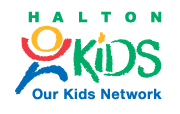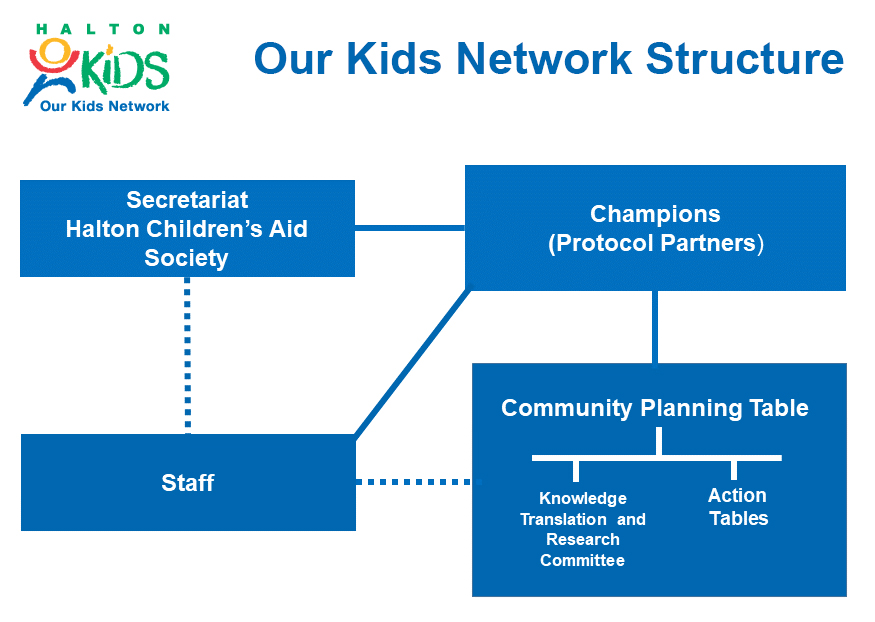Foundational Frameworks Why? How? What?
Why? The Halton 7 Population Results
Our vision is that all children and youth thrive. To help achieve this mission, we established the Halton 7, which are the seven evidence-based conditions that support the wellbeing of children, youth, families and their communities.
By focusing on these seven conditions, we work to provide the necessary data and resources to help children and families overcome challenges and achieve their full potential. Our ultimate goal is to build stronger, healthier communities where every child can succeed
How? Results Based Accountability (RBA), Knowledge Mobilization (KMb) and Asset-Building
Our Kids Network is dedicated to achieving positive outcomes for children, youth, families, and communities in a smart and disciplined way. We use results based accountability, knowledge mobilization and asset-building to ensure all children and youth thrive.
Results Based Accountability (RBA) is a framework that we use to plan our actions strategically. We begin by identifying the outcomes we want to achieve, and then work backwards to determine the steps we need to take to make those outcomes a reality. In Halton, we focus on the ‘Halton 7’, which are conditions that support the well-being of children, families, and communities.
At Our Kids Network, we believe in the importance of knowledge mobilization. This involves making research and knowledge accessible, understandable, and useful to knowledge users, with the aim of improving outcomes for children and families. Knowledge mobilization is about more than just sharing information – it also involves actively engaging knowledge users and evaluating the effectiveness of our efforts.
We also believe in the importance of instilling developmental assets in children and youth. These are positive experiences, qualities, and skills that help young people grow up to be healthy, responsible, and successful adults. By promoting these assets, we can support the well-being and success of young people in our community.
What? Collective Impact
We are committed to making a positive difference in the lives of children, families, and communities. We know that working together is the best way to achieve our goals. Collective Impact involves bringing together partners and the community to identify challenges, set shared goals, and coordinate our actions. By working together and sharing what we learn, we can make a bigger and more lasting impact than we could alone.
Frameworks and Strategies to Support Coordination, Collaboration, and Planning
We use different planning methods and strategies to support positive experiences that impact how children learn and develop. We also make sure to put our knowledge into practice, so we can make a real difference in the lives of children and families. By combining our efforts and using what we know, we can create a better future for all children.
Collective Impact
Framework and strategies for identifying and defining the challenge(s) to be addressed, actively coordinating our actions and sharing lessons learned.
OKN Collective Impact Structure
In 2013, OKN formalized our commitment by adopting a structured “Collective Impact” approach to achieving common goals.
Results Based Accountability
Disciplined way of thinking and taking action collectively. Begin with the end result in mind and work backwards, step by step, towards the means.
Knowledge Mobilization (KMb) Toolkit
Centre for Excellence for Child and Youth Mental Health Resources knowledge and tools to mobilize knowledge, and ultimately improve outcomes for children, youth and families.

